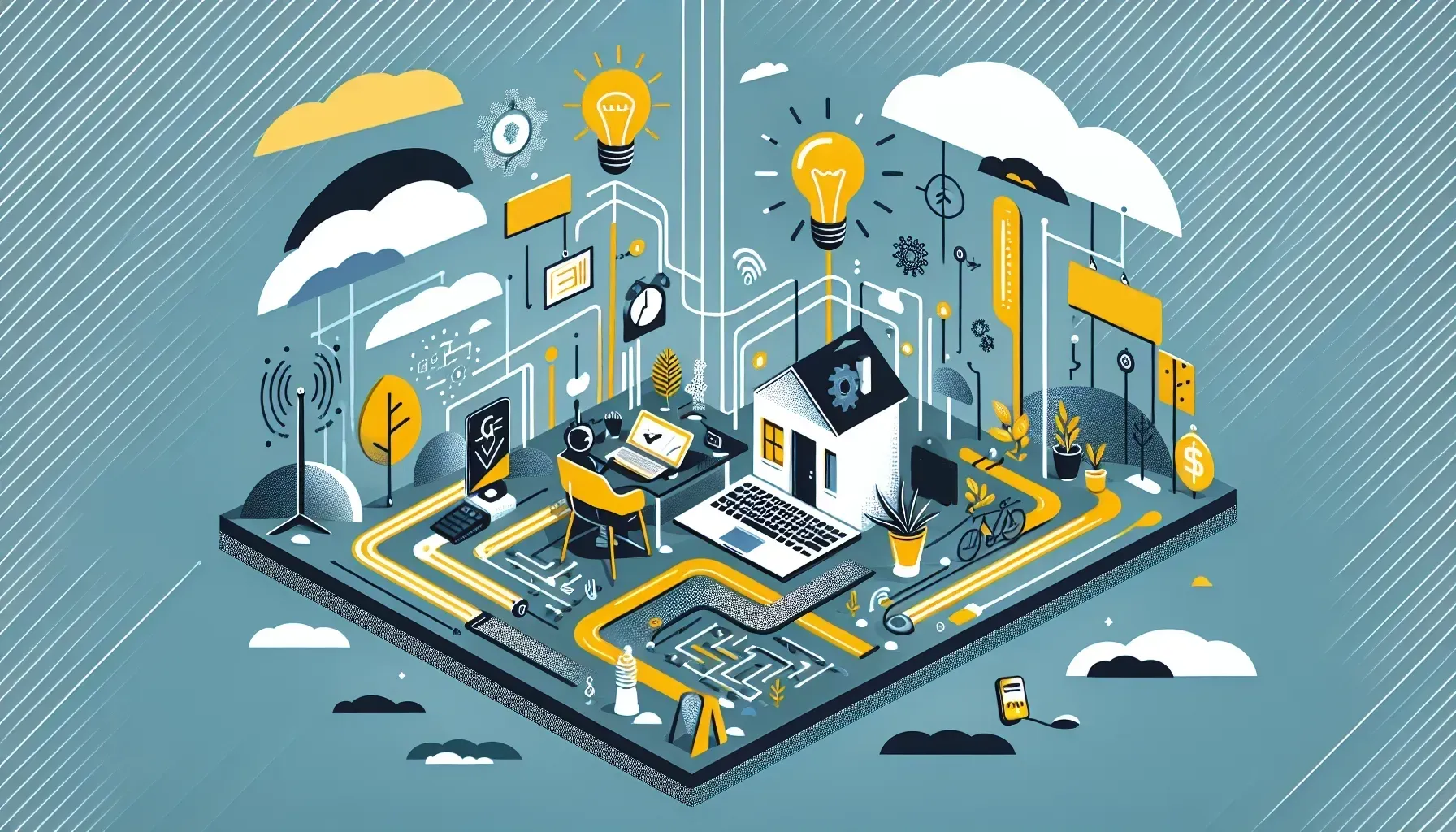Navigating the Gig Revolution: How Autistic Individuals Are Pioneering New Paths in Flexible Work

In recent years, the pervasive rise of the gig economy has reshaped traditional employment paradigms, offering newfound prospects for individuals seeking alternative work arrangements. This shift has been particularly noteworthy for autistic individuals seeking tailored work environments that accommodate their unique strengths and capabilities. In this comprehensive exploration, we delve into the allure of the gig economy for autistic workers, the customized nature of gig work, and its transformative impact in empowering autonomy and challenging societal prejudices.
The gig economy presents a compelling draw for autistic individuals due to its inherent flexibility and adaptability. Unlike conventional employment structures, gig work allows for personalized scheduling, enabling individuals to tailor their work hours to align with their optimal productivity periods. This autonomy over work schedules can be especially beneficial for autistic individuals who may thrive in environments free from rigid time constraints, allowing them to capitalize on their individual strengths and preferences.
The Allure of the Gig Economy for Autistic Workers
Furthermore, the diverse array of gig opportunities provides autistic workers with a spectrum of choices to align their skills and interests with suitable work assignments. From freelance writing and graphic design to web development and virtual assistance, the gig economy offers a wide-ranging repertoire of roles conducive to accommodating the varied talents and inclinations of autistic individuals.
Why Flexibility Matters for Autistic Individuals
The malleability of gig work allows for the individualized tailoring of job responsibilities, creating an environment that can cater to the unique strengths and interests of autistic workers. Task customization within the gig economy empowers individuals to pursue engagements aligned with their skill sets while minimizing exposure to areas where they may face challenges.
Diverse Opportunities in the Gig Economy
For instance, an individual adept at data analysis but susceptible to sensory overload in open office settings may find solace in securing remote data analytics gigs. This ability to fine-tune work environments to suit personal needs underscores the inherent compatibility between gig work and the requirements of neurodiverse individuals.
Customizing Gig Work to Fit Autistic Strengths
Remote work, an integral facet of the gig economy landscape, has emerged as a salient boon for autistic workers seeking structured home-based settings. The controlled nature of remote work environments can mitigate potential stressors typically encountered in bustling office atmospheres, fostering an atmosphere conducive to sustained productivity and well-being.
With the abundance of remote job opportunities spanning various domains, autistic individuals can now pursue fulfilling careers without facing geographical barriers or compromising their need for familiar and structured settings. Embracing these opportunities not only enriches the professional landscape for autistic individuals but also serves as a testament to the paradigm-shifting potential embedded within the gig economy framework.
Related Article: From Diagnosis to Dedication: A Physicians Journey in Autism Care
The Impact of Remote Work on Autistic Individuals
A noteworthy phenomenon within the convergence of autism advocacy and the gig economy is the emergence of autistic entrepreneurs leveraging its dynamic landscape to propel personal and professional growth. By capitalizing on their specialized skills and honing entrepreneurial acumen, these individuals are carving out niches across diverse sectors, thus amplifying inclusivity and diversity within the entrepreneurial sphere.
The fluidity inherent in gig entrepreneurship empowers autistic individuals to shape their professional trajectories based on their distinct competencies, effectively transcending conventional career barriers. This entrepreneurial autonomy not only fosters self-sufficiency but also exemplifies the transformative influence wielded by embracing alternative employment frameworks.
Autistic Entrepreneurs in the Gig Economy
While the gig economy offers unprecedented prospects, fostering seamless integration necessitates robust support networks catering specifically to autistic workers. Mentoring initiatives tailored to address unique challenges, procurable accommodations for workspace customization, and avenues for networking with like-minded peers collectively constitute indispensable scaffolding facilitating equitable access to gig opportunities.
In a bid to cultivate an inclusive ecosystem resonant with empathy and understanding, support networks play an instrumental role in advocating for workplace accommodations and dispelling misconceptions pertaining to neurodiversity. By championing collaborative partnerships between employers, gig platforms, and autism advocacy groups, these networks fortify pathways leading toward sustainable gig employment solutions.
The Role of Support Networks for Autistic Workers
Amidst its burgeoning appeal, it becomes imperative to scrutinize the long-term viability of gig work as a sustainable career trajectory for autistic individuals. While it undeniably affords unparalleled autonomy and customization possibilities, challenges pertaining to job security, access to benefits, and financial stability necessitate deliberate contemplation.
Sustainable integration entails amalgamating supportive infrastructure with evolving legislative frameworks aimed at safeguarding rights and entitlements pertinent to gig workers. Addressing these prevailing concerns will undoubtedly underpin sustainable career prospects within the gig economy while concurrently championing an inclusive framework resonant with equitable opportunities for all.
Building Inclusive Support Systems
Gig platforms serve as catalytic agents engendering a paradigm shift by dismantling traditional employment barriers confronted by autistic individuals. As opposed to navigating through conventional recruitment processes replete with potential biases and systemic impediments, gig platforms offer streamlined onboarding procedures predicated on skill assessment rather than conformity to normative workplace dynamics.
Related Article: Unveiling Expert Journeys: How a Renowned Child Psychologist Found Purpose in Autism Advocacy
Evaluating the Sustainability of Gig Work for Autistic Individuals
This departure from conventional hiring norms not only democratizes access but also mitigates prevalent disparities faced by neurodiverse job seekers. By proffering direct pathways into self-employment models or flexible contractual engagements, gig platforms empower autistic individuals to chart autonomous professional trajectories devoid of entrenched impediments characteristic of mainstream employment avenues.
The Advantages of Gig Platforms for Autistic Workers
The narrative metamorphosis facilitated by success stories embedded within the intersectional spectrum of autism advocacy and gig work precipitates enduring impacts on societal perceptions. Capturing triumphs emblematic of perseverance, innovation, and enterprise showcases firsthand narratives illustrating that autism intersects seamlessly with professional eminence within gig economies.
These testimonies serve as potent instruments capable of effacing ingrained prejudices while substantiating that diversity is not antithetical to excellence but an enabler thereof. The assimilation of success narratives across multifaceted dimensions perpetuates an inclusive environment reflective of multifarious triumphs catalyzed by harnessing innate talents unrestricted by neurocognitive predispositions.
Related Article: From Parent to Professional Advocate: The Evolution of an Educational Specialist in Autism Care
Changing Perceptions: Success Stories in the Gig Economy
Technological innovations enshrined within contemporary gig platforms orchestrate a pivotal role in democratizing accessibility for autistic job seekers. Leveraging user-friendly interfaces, intuitive tools, and adaptive features caters inclusively to diverse cognitive modalities while engendering equitable participation across demographic spectra.
The marriage between technology and inclusivity transcends conventional imperatives by sculpting fluid experiences tailored to accommodate idiosyncratic requirements interfacing aptly with innate strengths. Consequently, this synergy nurtures an environment fostering seamless navigation where neurodiverse job seekers encounter amenable pathways leading towards igniting vocational fulfillment within gig economies.
Frequently Asked Questions
The gig economy offers flexibility and adaptability, allowing autistic individuals to customize their work schedules according to their productivity peaks. This autonomy helps them thrive in environments free from rigid time constraints, aligning work opportunities with their unique strengths and preferences.
Gig work allows for task customization, enabling autistic individuals to engage in roles that align with their skills while minimizing exposure to challenging areas. For example, someone skilled in data analysis can find remote gigs that accommodate their sensory needs, creating a more supportive work environment.
Remote work provides a structured home environment that reduces stressors common in traditional office settings. This controlled atmosphere fosters productivity and well-being, allowing autistic workers to pursue fulfilling careers without geographical limitations or the challenges of unfamiliar environments.
Autistic entrepreneurs are individuals leveraging the gig economy to foster personal and professional growth. By utilizing their specialized skills and entrepreneurial spirit, they create unique niches across various sectors, contributing to inclusivity and diversity within the business landscape.
Support networks are crucial for helping autistic workers navigate gig opportunities. They provide mentoring, workspace accommodations, and networking avenues that foster equitable access. These initiatives advocate for workplace accommodations and help dispel misconceptions about neurodiversity in professional settings.
While gig work offers autonomy and customization, its long-term viability raises concerns regarding job security, benefits, and financial stability. Sustainable integration requires supportive infrastructure and legislative frameworks to protect gig workers' rights, ensuring equitable opportunities within the gig economy.
Gig platforms facilitate access for autistic job seekers by streamlining onboarding processes based on skill assessment rather than traditional hiring biases. This approach democratizes employment opportunities, allowing neurodiverse individuals to pursue self-employment or flexible contracts without facing systemic barriers.
Success stories within the gig economy challenge societal prejudices by showcasing the achievements of autistic individuals. These narratives highlight perseverance and innovation, demonstrating that autism can coexist with professional excellence, thereby fostering a more inclusive environment in various industries.
Technological innovations in gig platforms create user-friendly interfaces and adaptive features that cater to diverse cognitive needs. This inclusivity ensures equitable participation for autistic job seekers, facilitating smoother navigation through the gig economy and promoting vocational fulfillment.
Check Out These Related Articles

Rising Stars: Entrepreneurial Journeys of Autistic Teenagers

Empowering Autistic Caregivers: The Rise of Freelance Specialists

Shifting Paradigms: The Gig Economy as a Beacon of Hope for Autistic Adults Seeking Employment
